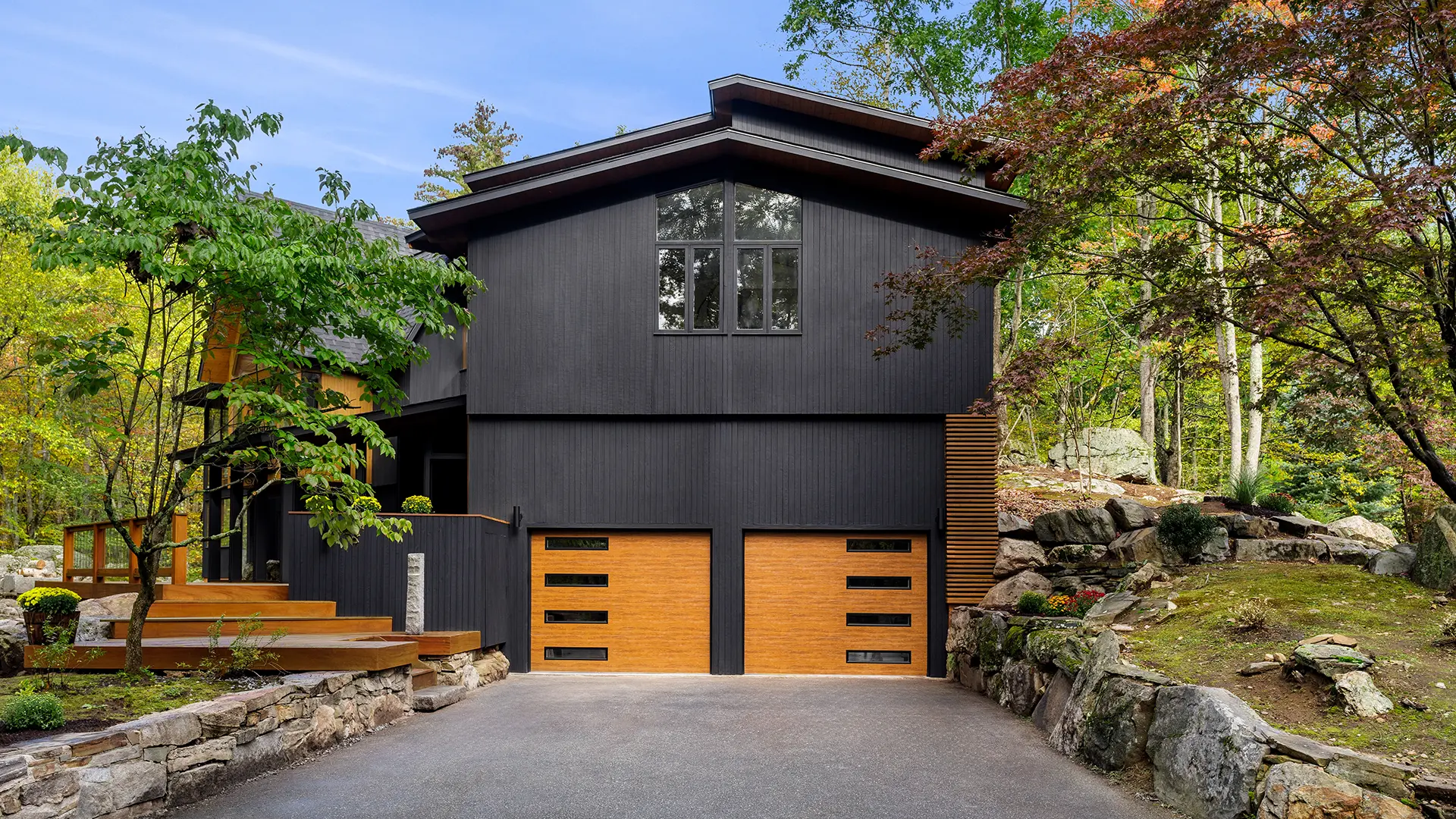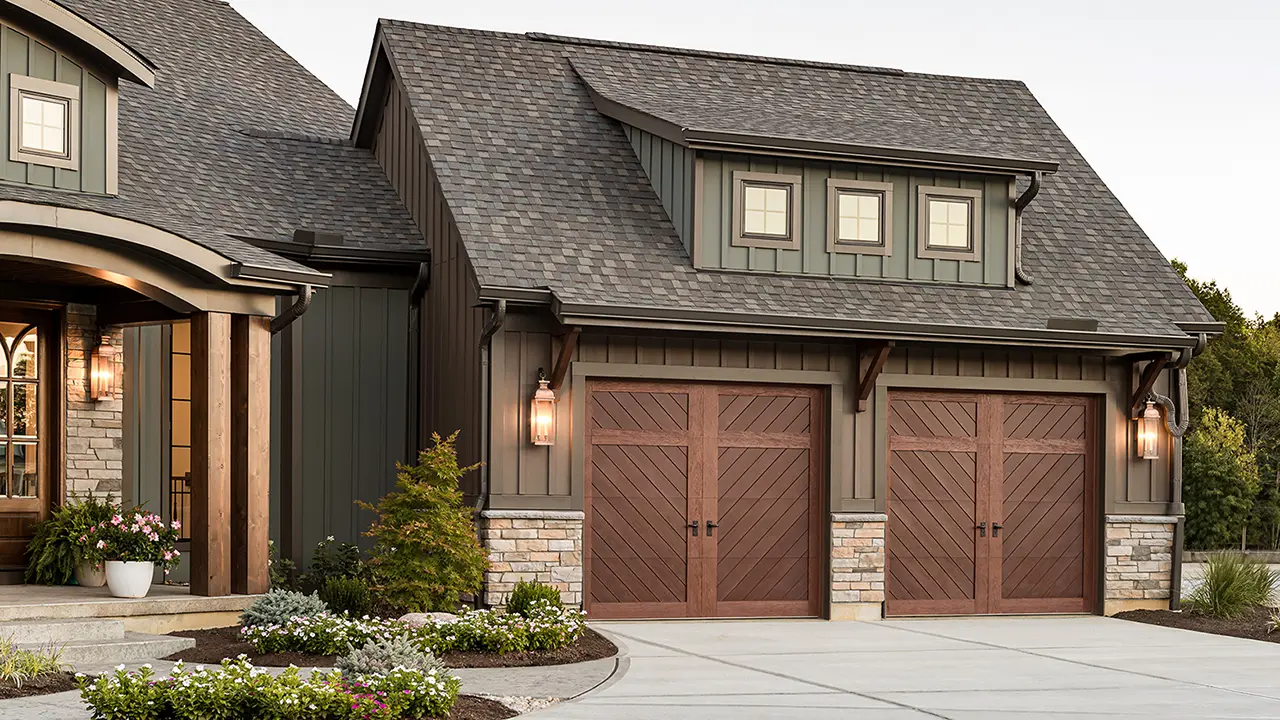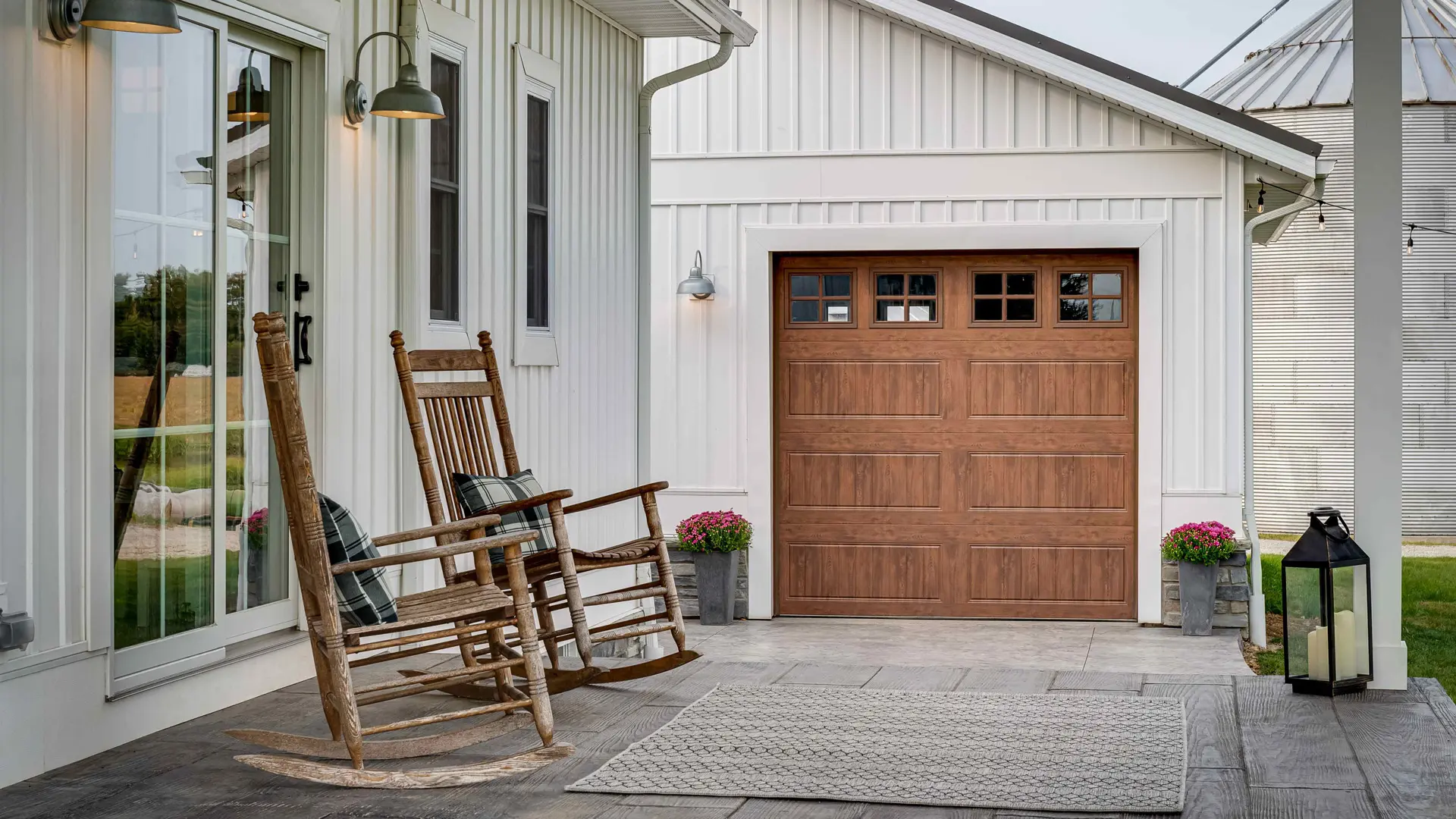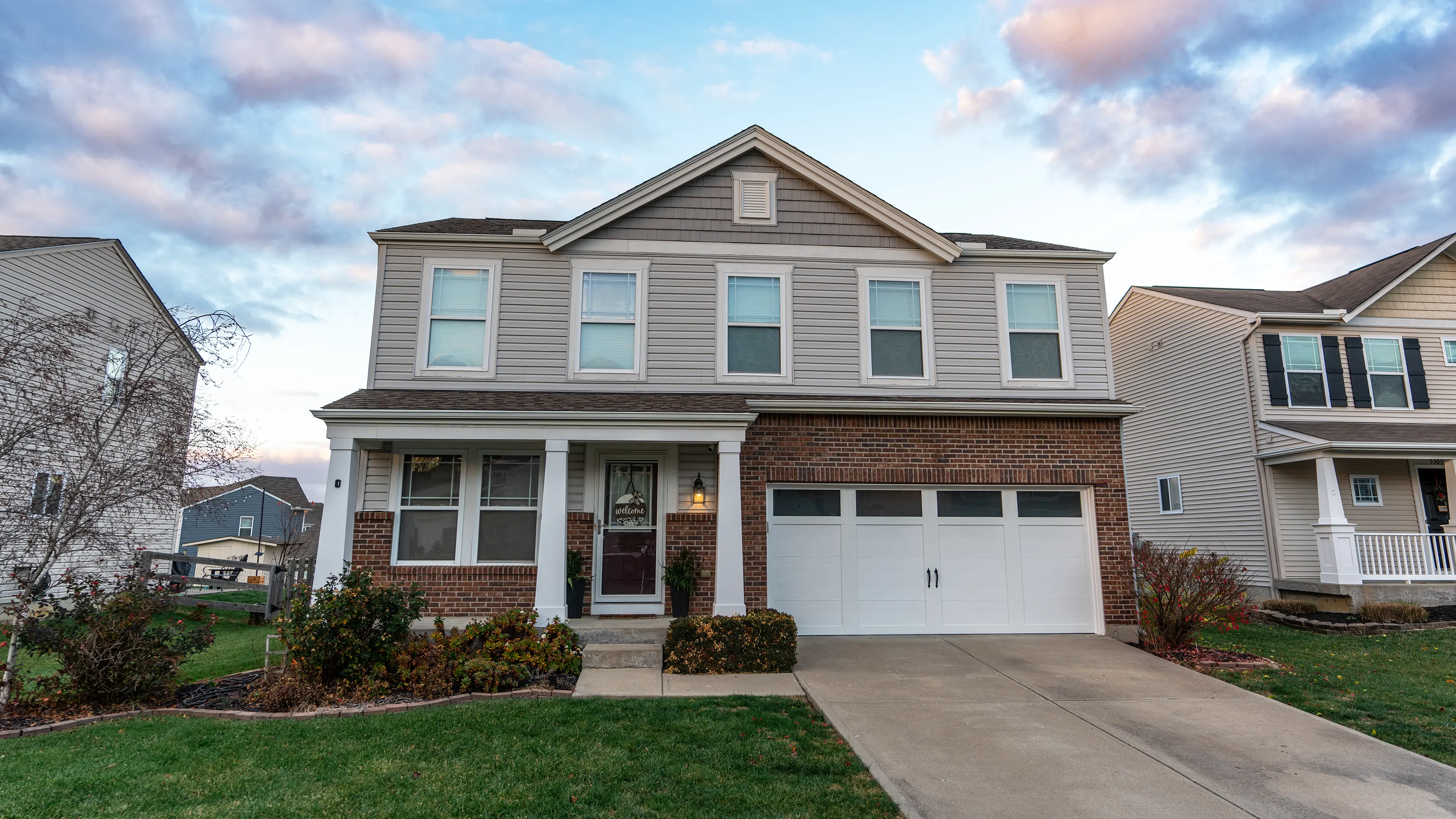The garage door is a key part of your home's curb appeal, functionality, and energy efficiency. But with so many materials to choose from, selecting the right one can seem overwhelming. Clopay® garage doors are typically made of natural wood, steel, composite or aluminum and glass. Each of these materials has their own benefits as well as disadvantages.
When you start researching different garage door materials, you’ll want to consider a few things like durability for withstanding everyday wear and tear and extreme weather and energy efficiency to help regulate temperatures in your garage and potentially lower your energy bills. And of course, aesthetic appeal, to complement your home's overall style.
Let's explore the pros and cons of popular garage door materials to help you make the best choice.
Steel Garage Doors
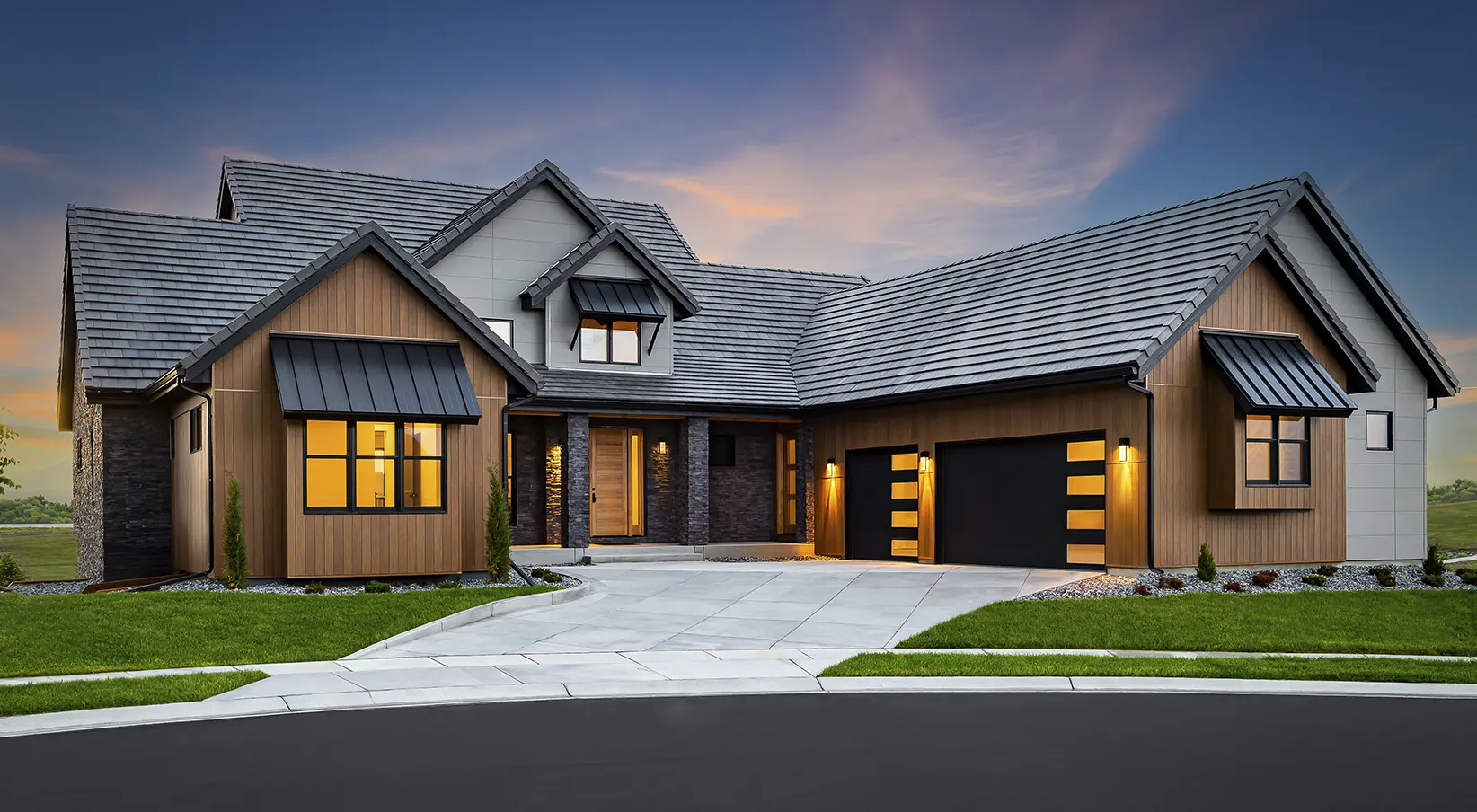
Clopay's Modern Steel garage door in Black Lustra, featured in HGTV's Rock the Block
For homeowners who desire a wide range of design and price options, steel garage doors can be an excellent choice. Steel strikes a balance between affordability, durability, and style, making it a popular material for many homes.
Clopay® offers steel garage doors in insulated or non-insulated construction, multiple layers for enhanced durability, and finishes including painted options or Ultra-Grain stained wood-look designs. For high wind load applications, WindCode® reinforcement options are also available.
Pros of Steel Garage Doors
- Low Maintenance: Unlike wood, steel doors won't crack, warp, or rot over time. Occasional cleaning with soap and water is all it takes to keep them looking their best.
- Durable: Steel's strength makes it an excellent choice for withstanding everyday wear and tear. It can handle harsh weather conditions like strong winds and heavy rain.
- Style Options: Steel garage doors are versatile—you're not limited to a plain industrial look. Clopay® offers steel doors with a variety of design options, including raised panels, carriage house styles, and even finishes that mimic the look of wood grain.
- Economical: Steel is generally the most affordable option compared to other garage door materials like wood or composite. This makes it an attractive choice for budget-conscious homeowners.
Cons of Steel Garage Doors
- Moderate Resistance to Dents: While steel is undoubtedly strong, it's not invincible. Thinner gauge steel doors are more susceptible to dents from accidental bumps or flying objects. Opting for thicker gauge insulated steel can improve dent resistance, but it will also come at a slightly higher price point.
- Not a Natural Insulator: Steel itself is a poor insulator. This means that an uninsulated steel garage door can allow heat to escape in the winter and hot air to enter in the summer. Consider choosing a steel door with a layer of insulation sandwiched between the steel panels for better energy efficiency.
- Scratches can Rust if Not Fixed Quickly: As with any metal, scratches on a steel garage door can expose it to moisture, leading to rust. Addressing scratches promptly by repainting the damaged area can prevent rust and maintain the door's appearance.
Natural Wood Garage Doors
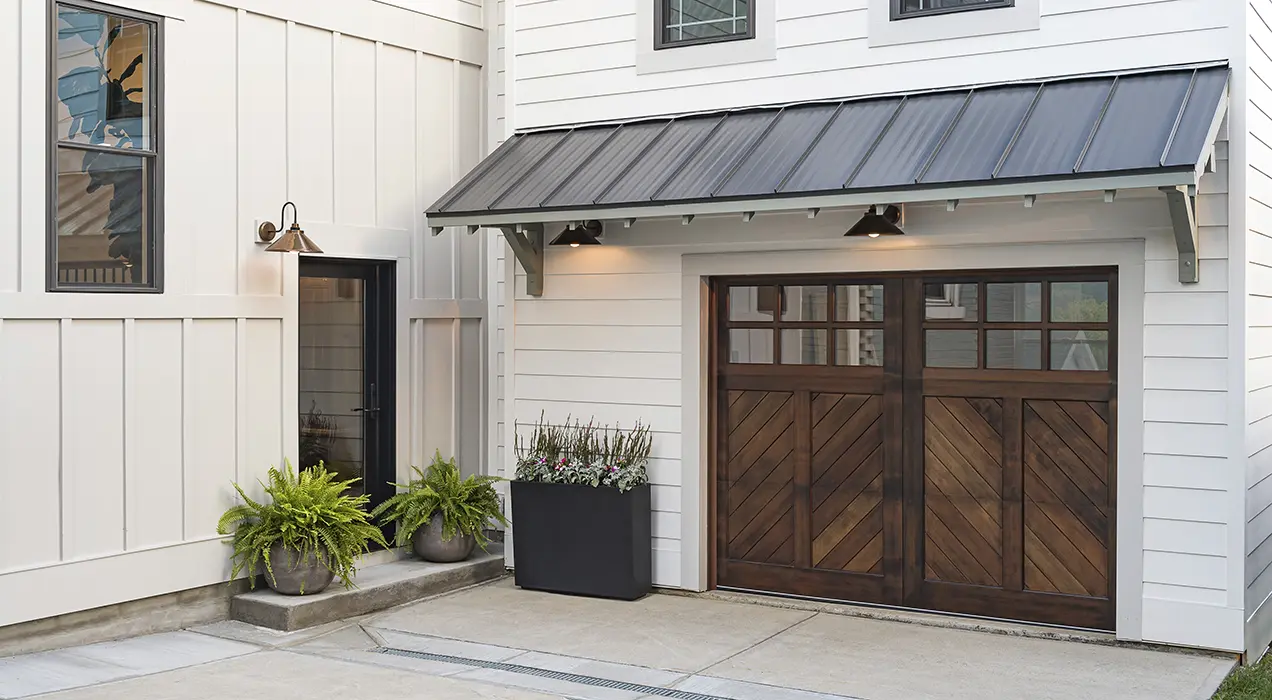
Reserve Wood Custom garage door
For many homeowners, the allure of a wood garage door is its warm, natural feel. A sturdy wood garage door conveys a rustic, old-world quality that brings timeless beauty to your home’s exterior, elevating its curb appeal and creating a truly unique aesthetic. Clopay® offers natural wood garage doors in a variety of species, including Redwood, Cedar and Fir, as well as specialty woods.
Pros of Natural Wood Garage Doors
- Beautiful, Rustic Look: A wood garage door’s natural textures and warm tones complement traditional, craftsman, or rustic architectural styles.
- Various Designs: Wood garage doors offer design flexibility. You're not limited to a single, flat panel but rather can choose from a variety of designs, including raised panels, carriage house styles, true arches and grooves, and custom options.
- Field Staining to Achieve Your Desired Look: Unlike pre-finished doors, natural wood allows for on-site staining or painting. This gives you complete control over the final look and finish.
Cons of Natural Wood Garage Doors
- Heavy and Difficult to Operate Manually: Compared to steel or aluminum doors, wood is considerably heavier. This can make them more difficult to operate manually, especially for larger doors.
- Requires Regular Maintenance: Natural wood requires regular upkeep to maintain its beauty and prevent damage. This includes cleaning, sanding, staining, or repainting, depending on the finish. The frequency of maintenance will depend on the climate and the amount of sun exposure the door receives.
- Can Warp, Swell, or Rot: Wood is susceptible to moisture and weather damage. If not properly sealed and maintained, it can warp, swell, or even rot over time. Choosing a high-quality wood species with proper weatherproofing can help reduce these risks.
Aluminum & Glass Garage Doors
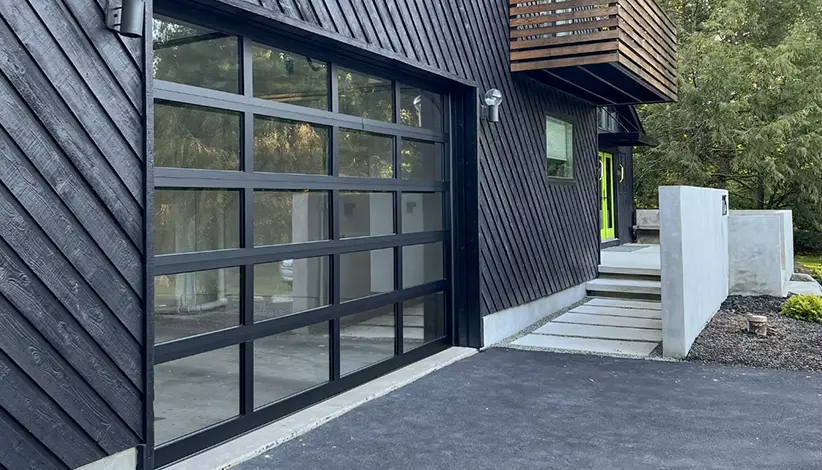
Avante glass garage door provides the finishing touch for a modern makeover - photo courtesy of @ourmodernhome
Among their many benefits, aluminum garage doors are not susceptible to rust or corrosion, making them a great choice for a long-lasting look. Aluminum garage doors are also lightweight and versatile, making them a common choice for not only garages, but also for indoor partitions and patios.
Clopay® offers aluminum garage doors with a range of glass options that provide natural light from outside during the day, and the warm glow of interior lighting in the evening.
Pros of Aluminum & Glass Garage Doors
- Naturally Resistant to Rust and Corrosion: Unlike steel, aluminum boasts exceptional resistance to rust and corrosion. This makes them a great choice for coastal areas or regions with high humidity.
- Allows Maximum Light into Garage: Aluminum doors with large glass sections are a fantastic way to brighten up your garage space. This can be beneficial if you utilize your garage for hobbies or as a workspace.
- Customization Options: Modern glass garage doors come in a variety of styles, colors, and finishes, allowing you to customize the door to complement the overall design of your home. You can choose from different types of glass and frame colors to achieve the desired look.
- Merging Indoor-Outdoor Spaces: If your home features indoor-outdoor living areas, a glass garage door can help seamlessly blend these spaces together. When the door is open, it creates a seamless transition between your indoor living space and outdoor patio or garden area.
Cons of Aluminum & Glass Garage Doors
- Low R-Value: Aluminum itself has a low R-value, which means it conducts heat relatively easily. This translates to a less insulated garage compared to steel or wood options. To overcome this, consider choosing an aluminum door with an insulated core for improved thermal performance.
- Privacy Issues Depending on Glass Selection: While windows in aluminum doors provide natural light, they can also compromise privacy. Opaque or tinted glass can offer privacy while still allowing light to enter.
Composite Overlay Garage Doors
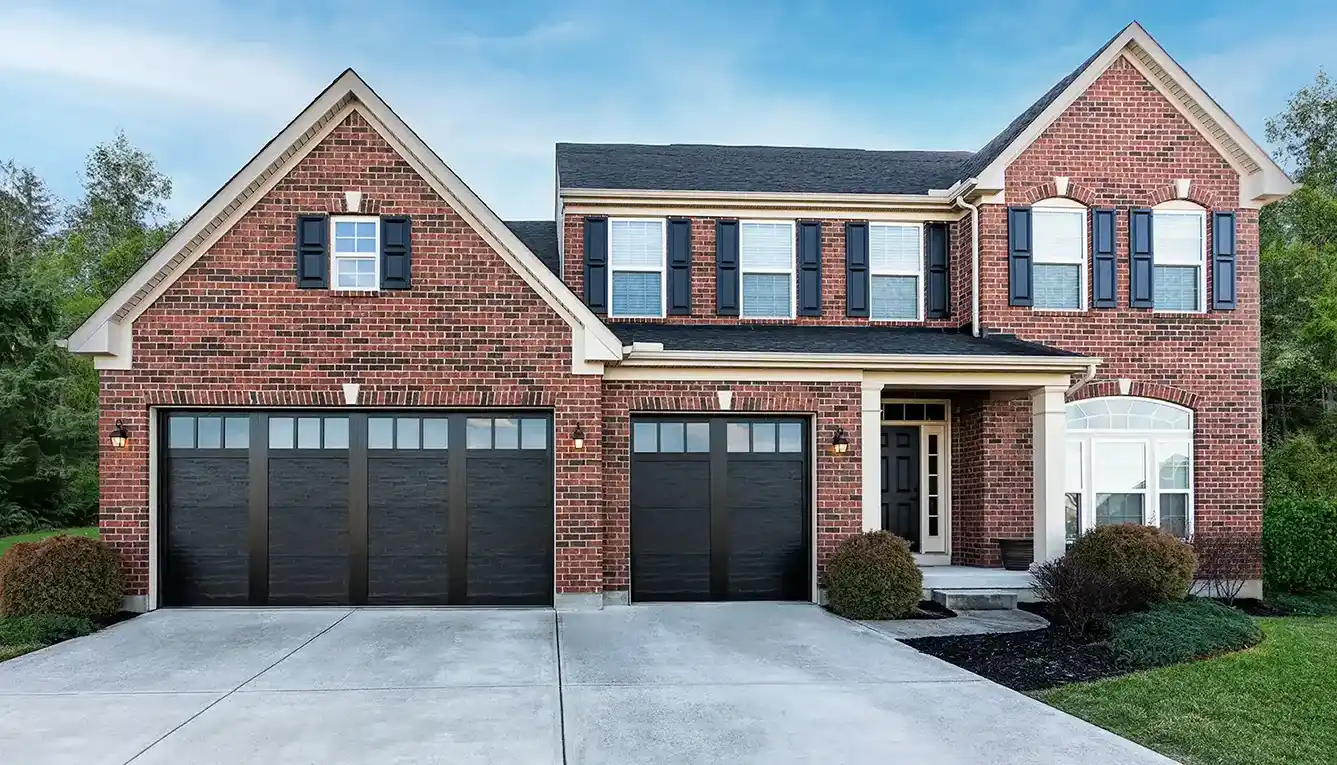
Canyon Ridge Elements garage door in black
For homeowners who want the look of wood without the upkeep, composite overlay doors are an excellent choice. These faux wood doors are constructed with an insulated steel base for strength and durability and topped with a moisture-resistant composite overlay.
Clopay® offers composite overlay garage doors in the Canyon Ridge®, Grand Harbor® and Coachman® styles.
Pros of Composite Overlay
- Moisture Resistant: Unlike wood, composite overlays won’t warp, shrink, or rot from moisture. This makes it a great choice for humid climates or areas prone to heavy rain or snowfall.
- Durable and Energy Efficient: With steel at its core, composite overlay garage doors give you durability with the timeless look of wood. Insulated doors ensure your home is well protected and energy efficient.
- Low Maintenance: With composite overlays, you can enjoy the look of real wood without the upkeep of a natural material. Regular cleaning with soap and water is all it takes to keep these doors looking their best.
Cons of Composite
- Not Easily Repaired: Composite overlays can't be easily repaired if significantly damaged. Dents or deep scratches may necessitate a door replacement, unlike steel doors where minor dents can be addressed.
- It’s Not Real Wood: While composite doors offer stunning wood looks, genuine wood garage doors deliver a natural aesthetic and insulation. If achieving a specific design vision is your priority, a real wood garage door may fit better.
Selecting the Right Garage Door Material for Your Home
Each garage door material offers unique advantages and disadvantages. The ideal choice for your home will depend on your priorities, climate, and budget. Clopay® is a garage door company that offers a wide selection of residential garage doors across various materials, styles, and colors. Browse their online collections to explore your options or visit a Clopay® dealer near you to discuss your requirements and get expert advice. With so many designs to choose from, you're sure to find a garage door that complements your home's aesthetics and enhances its curb appeal.
Helpful Articles
Guide to Garage Door Materials

